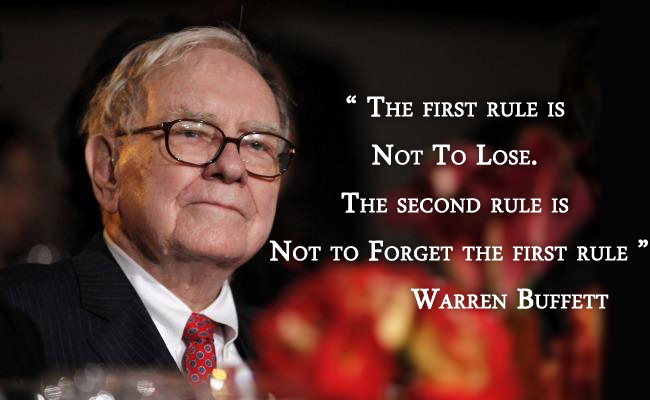
When you are told that all repurchases are harmful to shareholders or to the country, or particularly beneficial to CEOs, you are listening to either an economic illiterate or a silver-tongued demagogue (characters that are not mutually exclusive)." "Gains from value-accretive repurchases, it should be emphasized, benefit all owners – in every respect. Invest In Yourself - Share Buybacks At Value-Accretive Prices Are A Good Thing For Everyone. Most people think of investing as a finite game but Warren and Charlie know it is an infinite game and they invest accordingly.Ħ.

Warren and Charlie know the power of compounding and they directly tell us that this is an infinite game and that there is no finish line. Most people get caught up in the day-to-day or week-to-week volatility on Wall Street and that causes them to miss the “big” moves. Stepping back and thinking long-term is one of Warren’s super powers. But their quarter-by-quarter gyrations, regularly and mindlessly headlined by media, totally misinform investors." He Also wrote, " At Berkshire, there will be no finish line." Capital gains, to be sure, have been hugely important to Berkshire over past decades, and we expect them to be meaningfully positive in future decades. "The GAAP earnings are 100% misleading when viewed quarterly or even annually. Long Term Thinker: In my book, I introduced the concept of Time Arbitrage which speaks to this point. There’s an old adage on Wall Street that says, Let your winners run and always cut your losses.ĥ. The most successful investors in history know that the size of your wins vs the size of your losses is a major component to their success. Instead of focusing on risk vs reward (size of your wins vs the size of your losses), instead they focus on your win to loss ratio or other “data” which literally does not move the needle. Most people get caught up focusing on the wrong things. Buffett has a remarkable track record and he just told us that his success is predicated on a small number of monster wins. In trading parlance, most trades fail, & that's OK (as long as your winners are bigger than your losers). And, yes, it helps to start early and live into your 90s as well." Over time, it takes just a few winners to work wonders. (Remember our escapes from near-disasters at USAir and Salomon? I certainly do.) Our satisfactory results have been the product of about a dozen truly good decisions – that would be about one every five years – and a sometimes-forgotten advantage that favors long-term investors such as Berkshire." In the next section he writes, " The lesson for investors: The weeds wither away in significance as the flowers bloom.

In some cases, also, bad moves by me have been rescued by very large doses of luck. "At this point, a report card from me is appropriate: In 58 years of Berkshire management, most of my capital-allocation decisions have been no better than so-so. You Can Still Do Very Well Even With A Small Number Of Winners. If markets were efficient that would not be possible.Ĥ. Buffett’s success for all these decades? If you say he is “lucky” or an “anomaly” sure, then how do you explain the top ten traders in the world’s remarkable performance of decades? Paul Tudor Jones, Stanley Druckenmiller, George Soros, William O’Neil, and the list goes on and on. Why? Because if they were how do you explain Mr. Buffett, and take the other side of that trade - that believes markets are not efficient. Many people (I believe, mistakenly) think that the market is efficient. This is another very powerful point that I fully agree with. In truth, marketable stocks and bonds are baffling, their behavior usually understandable only in retrospect.” “Efficient” markets exist only in textbooks.

It’s crucial to understand that stocks often trade at truly foolish prices, both high and low. “One advantage of our publicly-traded segment is that – episodically – it becomes easy to buy pieces of wonderful businesses at wonderful prices. Markets Are NOT Efficient - I couldn't agree more and I have a whole section that discusses this in book, Psychological Analysis They think like business owners and they understand that there are times when the stock market is not efficient, which brings us to our next point.ģ. Most people pick stocks and when the stock goes down they panic and sell. That is very important because it creates an entirely different mental framework that he can operate from. Buffett makes it very clear that he is in the business picking business and not the stock picking business.


 0 kommentar(er)
0 kommentar(er)
